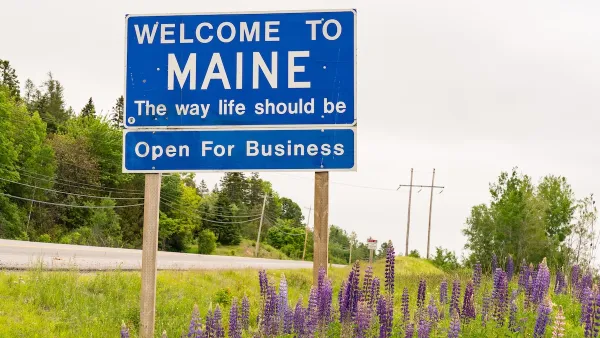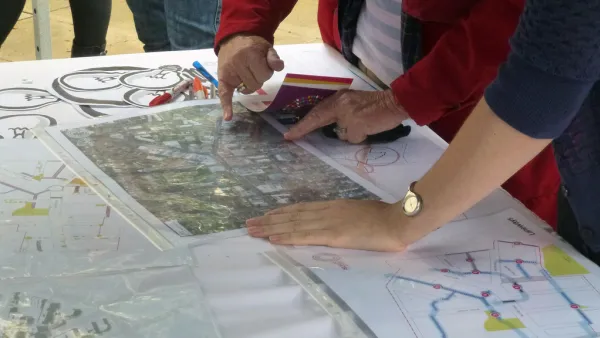Recent studies report a noted decrease in traffic congestion in the D.C. area. Robert McCartney credits two trends and asks how the area should spend additional transportation revenues that will be generated by recent tax increases.
"An unusual confluence of events has created a rare opportunity today for our region to do even more to unclog roads and improve the quality of life," says McCartney.
"Both Virginia and Maryland passed historic tax increases in the spring to raise additional billions of dollars for roads and transit. The new money is arriving just as two important, long-term trends improve the odds that the money could actually lead to appreciably less time wasted in backups."
"First, people are driving less, both in the Washington region and the rest of the nation," he explains. "Second, our area is seeing the benefits of so-called smart growth policies designed to concentrate development around mass transit, especially Metro stations, and generally encourage alternatives to driving."
McCartney looks at the balance of transportation investments that need to be demanded by the public, and some of the key battles that need to be resolved in order to build on recent gains.
"There’s money on the way and reason to believe that it can make a sizable dent in what’s often called the region’s biggest problem. Let’s not blow this chance."
UPDATE: For a critical response to McCartney's column, with suggestions for how to further reduce congestion without building new roads, see Richard Layman's post on the blog "Rebuilding Place in the Urban Space".
FULL STORY: Column: Washington area has a real chance to reduce traffic congestion

National Parks Layoffs Will Cause Communities to Lose Billions
Thousands of essential park workers were laid off this week, just before the busy spring break season.

Retro-silient?: America’s First “Eco-burb,” The Woodlands Turns 50
A master-planned community north of Houston offers lessons on green infrastructure and resilient design, but falls short of its founder’s lofty affordability and walkability goals.

Delivering for America Plan Will Downgrade Mail Service in at Least 49.5 Percent of Zip Codes
Republican and Democrat lawmakers criticize the plan for its disproportionate negative impact on rural communities.

Test News Post 1
This is a summary

Test News Headline 46
Test for the image on the front page.

Balancing Bombs and Butterflies: How the National Guard Protects a Rare Species
The National Guard at Fort Indiantown Gap uses GIS technology and land management strategies to balance military training with conservation efforts, ensuring the survival of the rare eastern regal fritillary butterfly.
Urban Design for Planners 1: Software Tools
This six-course series explores essential urban design concepts using open source software and equips planners with the tools they need to participate fully in the urban design process.
Planning for Universal Design
Learn the tools for implementing Universal Design in planning regulations.
EMC Planning Group, Inc.
Planetizen
Planetizen
Mpact (formerly Rail~Volution)
Great Falls Development Authority, Inc.
HUDs Office of Policy Development and Research
NYU Wagner Graduate School of Public Service




























